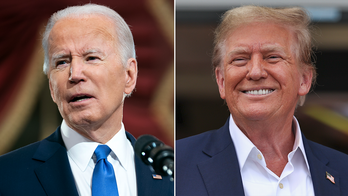The House is set to fast-track approval of a slew of China-related bills aimed at countering the U.S.'s growing foe in a concerted effort dubbed "China Week."
With only three weeks of work on Capitol Hill before the November election, the Republican-led House is dedicating precious floor time to a series of bills that would root out Chinese spyware within the country and empower the next president to take tougher action against Beijing.
According to Majority Leader Steve Scalise, "We wanted to combine them all into one week so that you had a real sharp focus on the fact that we need to be aggressive in confronting the threat that China poses." He expressed confidence in gaining bipartisan support, recognizing that China's actions pose direct threats to the U.S.'s national security.

House Prepares for "China Week" to Counter Growing Threat
Four bills will be introduced under a rule for debate and amendments, while others will be presented under suspension of the rules for swift passage.
Among the significant bills is one that would revoke the Biden administration's guidance allowing Chinese-made electric vehicles to qualify for a $7,500 tax credit. The move drew criticism even from Democrat-turned-Independent Senator Joe Manchin, who co-authored the Inflation Reduction Act that included the credit.

House Prepares for "China Week" to Counter Growing Threat
Another bill proposes a broad ban on China purchasing U.S. farmland, as Chinese entities currently own approximately 380,000 acres of agricultural land in the U.S.
In addressing pandemic preparedness, the No WHO Pandemic Preparedness Treaty Without Senate Approval Act seeks to prevent the U.S. from approving any WHO-negotiated treaty without the support of two-thirds of the Senate.

House Prepares for "China Week" to Counter Growing Threat
To mitigate potential espionage, the Biosecure Act would prohibit federal research labs from utilizing biotechnology equipment from companies susceptible to data sharing with the Chinese Communist Party (CCP).
The DHS Restrictions on Confucius Institutes and Chinese Entities of Concern Act would allocate federal funding away from universities associated with CCP-run Confucius Institutes, which have been identified as potential channels for infiltration.
Additionally, a bill would re-establish a Justice Department task force dedicated to investigating Chinese espionage within the U.S.
The FBI has estimated over 2,000 active investigations related to Chinese spying and estimates that counterfeit goods, pirated software, and trade secret theft from China have cost the U.S. economy billions of dollars.
By initiating "China Week," the House aims to showcase its commitment to addressing the growing threat posed by China and garner support from voters ahead of the upcoming election.










